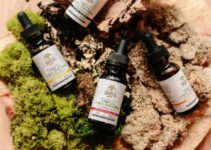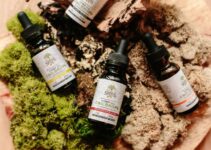I've compiled 7 essential tips for sourcing pure, traceable hemp oil. From understanding sourcing regulations to verifying extraction methods and third-party testing, these tips will ensure you're getting the highest quality hemp oil available. Whether you're a consumer or a business looking for the best hemp oil products, following these guidelines will help you make informed choices and support ethical and transparent practices in the hemp industry.
Key Takeaways
- Compliance with hemp sourcing regulations ensures product quality and legality
- Different extraction methods impact the final purity of hemp oil
- Third-party testing ensures safety, potency, and quality of the hemp oil
- Organic farming practices guarantee purity, traceability, and environmental sustainability
Understand Hemp Sourcing Regulations
When sourcing pure traceable hemp oil, I ensure compliance with hemp sourcing regulations to guarantee the product's quality and legality. Understanding hemp farming regulations and ethical sourcing is crucial. It ensures that the hemp used in the oil is grown in accordance with the law and ethical standards, promoting sustainable practices and fair trade sourcing. By adhering to these regulations, I can be certain that the hemp oil is free from contaminants and meets the necessary quality benchmarks. Ethical sourcing also means that the farmers involved in hemp cultivation are treated fairly and justly. This not only contributes to the high quality of the hemp oil but also supports the livelihoods of those involved in its production. Therefore, staying informed about hemp farming regulations and ethical sourcing practices is fundamental in ensuring the purity and traceability of the hemp oil.
Seek Certifications for Traceability
Seeking certifications for traceability is essential when sourcing pure hemp oil. When looking for traceable hemp oil, certifications play a crucial role in ensuring supply chain transparency and product origin traceability. Here are some certifications to look for:
- USDA Organic Certification: Look for hemp oil that is certified organic by the United States Department of Agriculture to ensure that it has been sourced and processed according to strict organic standards.
- GMP Certification: Good Manufacturing Practice certification ensures that the hemp oil has been produced and controlled according to quality standards.
- COA (Certificate of Analysis): This document provides transparency by verifying the product's contents and quality, including the presence of any contaminants.
- Fair Trade Certification: Opt for hemp oil that is certified as fair trade to support ethical and sustainable practices in the supply chain.
Verify Extraction Methods
Ensuring the purity of traceable hemp oil starts with verifying the extraction methods used. It's crucial to understand the extraction techniques employed by the hemp oil manufacturer to ensure the product's quality and purity. Different extraction methods can impact the final product, so it's essential to look for quality control measures in the extraction process. Here's a comparison of common extraction methods used in hemp oil production:
| Extraction Method | Description | Quality Control |
|---|---|---|
| Solvent Extraction | Uses chemical solvents like ethanol or butane | Requires rigorous testing to remove residual solvents |
| CO2 Extraction | Utilizes carbon dioxide under high pressure and low temperature | Requires precise control of pressure and temperature to ensure purity |
| Ethanol Extraction | Uses ethanol to extract cannabinoids and other compounds | Requires careful monitoring to prevent degradation of cannabinoids |
Understanding the extraction methods and the quality control measures associated with them will help in sourcing pure and traceable hemp oil.
Investigate Third-Party Testing
To ensure the purity and traceability of hemp oil, I investigated third-party testing to validate the quality of the product. Here's what I learned:
- Evaluate potency: Third-party testing provides accurate information about the potency of the hemp oil, ensuring that you're getting the right concentration of beneficial compounds, such as CBD.
- Test for contaminants: Third-party testing can detect any potential contaminants in the hemp oil, including heavy metals, mold, or bacteria, ensuring its safety for consumption.
- Check for purity: This testing verifies that the hemp oil is free from any unwanted additives or impurities, ensuring that you're getting a pure product.
- Screen for pesticides: Third-party testing checks for the presence of pesticides, ensuring that the hemp oil is free from harmful chemicals used during cultivation.
Consider Organic Farming Practices
From within the industry, I've found that opting for hemp oil sourced from organically-grown plants is key to guaranteeing purity and traceability. Organic certification ensures that the hemp is cultivated using sustainable farming practices, free from synthetic pesticides, herbicides, and fertilizers. This not only promotes environmental sustainability but also minimizes the risk of exposure to harmful chemicals in the hemp oil. When considering organic farming practices, look for certifications such as USDA Organic, which adheres to strict regulations for organic farming. By choosing hemp oil derived from organically-grown hemp, consumers can have confidence in the product's purity and traceability, knowing that it has been cultivated in an environmentally responsible manner.
| Pros | Cons |
|---|---|
| Environmentally friendly cultivation | Higher production costs |
| Purity and traceability assurance | Limited availability |
| Supports sustainable agricultural practices | Potential for smaller yields |
Assess Transparency in Manufacturing
When sourcing hemp oil, it's crucial to assess the transparency in manufacturing. I always verify the supply chain transparency, check the production process, and ensure the origins of the product are traceable. This helps me make informed decisions about the purity and quality of the hemp oil I choose.
Verify Supply Chain Transparency
The verification of supply chain transparency in hemp oil manufacturing is crucial for ensuring the purity and traceability of the product. When assessing transparency in manufacturing, I consider the following:
- Ethical Sourcing: I prioritize suppliers who adhere to ethical labor practices and environmental standards.
- Supply Chain Visibility: It's essential to work with manufacturers who provide full visibility into their sourcing, production, and distribution processes.
- Quality Control Measures: I look for manufacturers who implement robust quality control measures at every stage of production to ensure the integrity of the hemp oil.
- Certifications and Documentation: I seek out manufacturers who have third-party certifications and provide comprehensive documentation regarding the hemp oil's sourcing and production.
These factors are pivotal in verifying the transparency of the supply chain and ultimately guaranteeing the purity and traceability of hemp oil.
Check Production Process
Assessing transparency in manufacturing, I delve into the production process to ensure that rigorous quality control measures are implemented at every stage, maintaining the integrity of the hemp oil. Understanding quality is paramount, so I scrutinize the entire production cycle, from seed to shelf. This involves evaluating purity, starting from the cultivation methods, through extraction, to packaging. By doing so, I can ensure that the hemp oil is free from contaminants and has the desired cannabinoid profile. It's essential to verify that the manufacturer employs Good Manufacturing Practices (GMP) and adheres to industry standards. Additionally, I seek out information on the extraction methods used, as this greatly impacts the purity and potency of the oil. By thoroughly understanding the production process, I can confidently select a hemp oil that meets my standards for quality and purity.
Ensure Traceable Product Origins
I always make sure to track down the origins of the hemp oil I'm considering, ensuring transparency in the manufacturing process. When assessing the traceable origins of hemp oil, I focus on two crucial aspects:
- Product Authentication: I prioritize products that provide detailed information about their origins, including third-party lab testing and certification. This ensures that the hemp oil is genuine and meets quality standards.
- Farming Transparency: I look for hemp oil brands that openly disclose where and how their hemp is cultivated. Knowing the farming methods and location allows me to assess the quality and purity of the hemp oil.
- Supplier Relationships: I value brands that have strong relationships with their hemp suppliers, as this often indicates a commitment to quality and ethical sourcing practices.
- Certifications and Compliance: I prioritize hemp oil products that adhere to industry standards and have relevant certifications, demonstrating a commitment to transparency and quality control.
Research Company Reputation
When researching a company's reputation for sourcing pure traceable hemp oil, I always check for customer reviews and third-party lab testing results. Customer reviews provide valuable insights into the quality and effectiveness of the hemp oil, helping me gauge the overall satisfaction and experiences of other users. Additionally, third-party lab testing results are crucial in verifying the purity and potency of the hemp oil, ensuring it meets industry standards. By examining these aspects, I can make an informed decision about the reliability and trustworthiness of the company.
| Aspect | Importance | Details |
|---|---|---|
| Customer Reviews | High | User experiences and ratings |
| Lab Testing Results | High | Verification of purity |
| Industry Standards | High | Compliance with regulations |
Frequently Asked Questions
How Does Hemp Sourcing Regulations Differ From Country to Country?
Regulatory differences in hemp sourcing vary from country to country, impacting import/export requirements. Each nation has its own rules and restrictions, affecting the cultivation, processing, and distribution of hemp oil. It's crucial to thoroughly research and understand these regulations when sourcing pure traceable hemp oil. Compliance with these diverse standards is essential for ensuring the quality and legality of the product.
What Are the Potential Risks of Not Seeking Certifications for Traceability?
Not seeking certifications for traceability can pose significant risks. Without them, it's challenging to ensure the environmental impact of hemp oil production is minimized. Additionally, quality control becomes difficult, leading to potential health hazards and ineffective products. Therefore, it's crucial to prioritize traceability certifications to guarantee the purity and safety of hemp oil.
How Can Consumers Verify the Extraction Methods Used by Hemp Oil Manufacturers?
To verify extraction methods used by hemp oil manufacturers, I'd recommend looking for quality assurance certifications. These certifications ensure that the extraction processes meet certain standards, guaranteeing a high-quality product. Additionally, reaching out directly to the manufacturer and asking specific questions about their extraction methods can provide valuable insight into their processes. Overall, seeking out transparency and reliable certifications is crucial for ensuring the purity and traceability of hemp oil.
What Are the Benefits of Third-Party Testing for Hemp Oil Products?
Third-party testing is crucial for hemp oil products. It ensures consumer awareness and industry standards. By verifying the purity and potency of the products, it builds trust. It's important to know what we're putting into our bodies. These tests provide peace of mind, showing that the oil is free from contaminants and meets industry regulations. It's a stamp of approval that lets us know we're getting a high-quality, safe product.
What Are the Potential Environmental Benefits of Supporting Companies That Practice Organic Farming?
Supporting companies that practice organic farming can have significant environmental benefits. Organic farming practices promote environmental sustainability by reducing pollution, conserving water, and enhancing soil quality. By choosing products sourced from organic farms, I can contribute to the preservation of biodiversity and the reduction of carbon footprint. It's important to prioritize companies that prioritize sustainable practices to help protect the environment for future generations.
Conclusion
After following these tips, I feel confident in my ability to source pure and traceable hemp oil. Understanding regulations, seeking certifications, verifying extraction methods, and investigating testing and farming practices have all helped me make informed decisions. Assessing transparency in manufacturing and researching company reputation have also been crucial in finding a reputable source. With these steps, I can be sure that the hemp oil I choose is of the highest quality.




